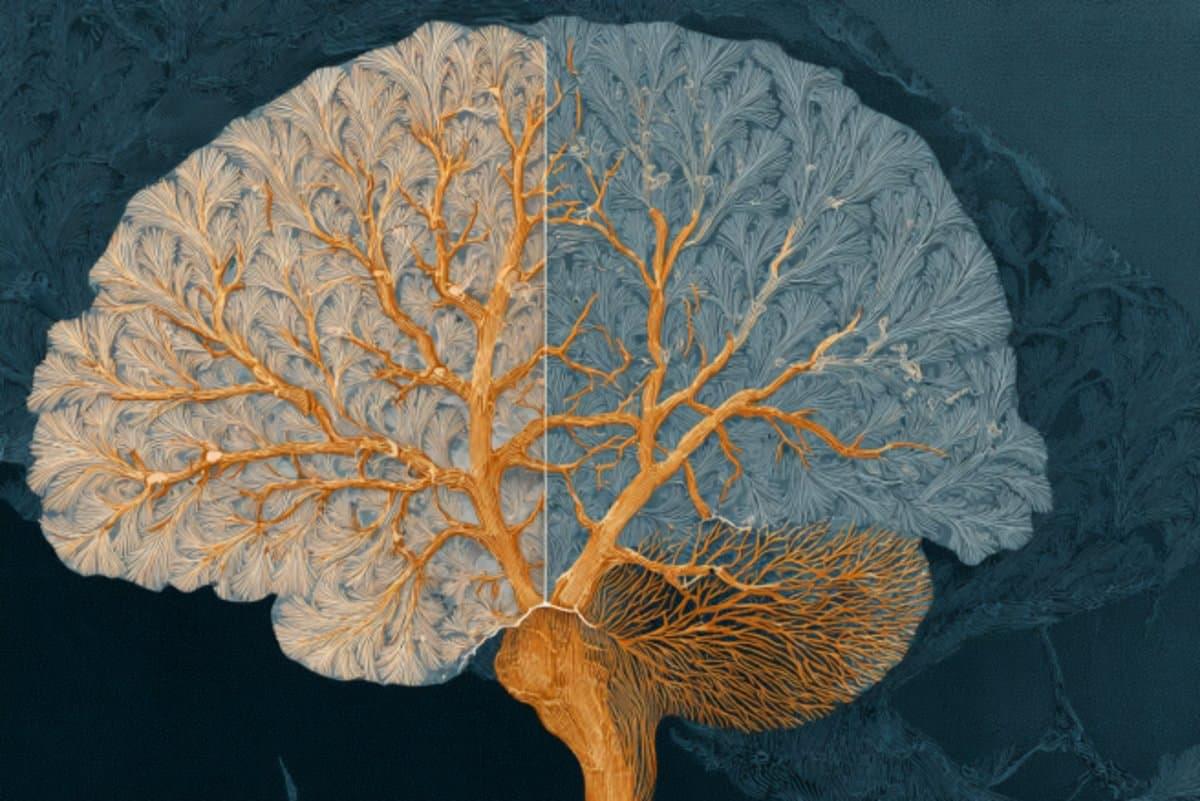Learn how specific intestinal bacteria can produce serotonin, influencing gut health and offering new IBS treatment options.


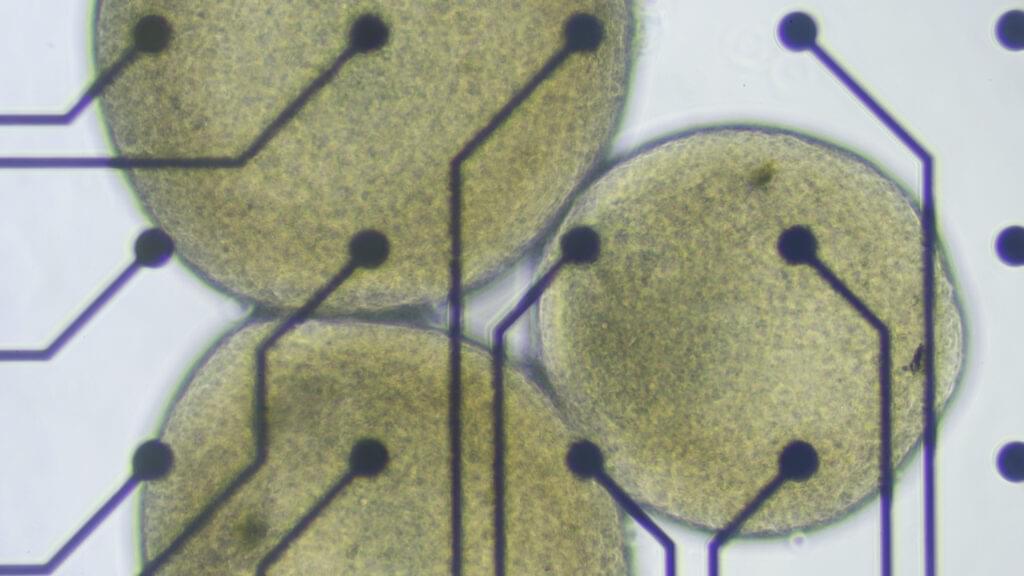
For the brain organoids in Lena Smirnova’s lab at Johns Hopkins University, there comes a time in their short lives when they must graduate from the cozy bath of the bioreactor, leave the warm, salty broth behind, and be plopped onto a silicon chip laced with microelectrodes. From there, these tiny white spheres of human tissue can simultaneously send and receive electrical signals that, once decoded by a computer, will show how the cells inside them are communicating with each other as they respond to their new environments.
More and more, it looks like these miniature lab-grown brain models are able to do things that resemble the biological building blocks of learning and memory. That’s what Smirnova and her colleagues reported earlier this year. It was a step toward establishing something she and her husband and collaborator, Thomas Hartung, are calling “organoid intelligence.”
Tead More
Another would be to leverage those functions to build biocomputers — organoid-machine hybrids that do the work of the systems powering today’s AI boom, but without all the environmental carnage. The idea is to harness some fraction of the human brain’s stunning information-processing superefficiencies in place of building more water-sucking, electricity-hogging, supercomputing data centers.
Despite widespread skepticism, it’s an idea that’s started to gain some traction. Both the National Science Foundation and DARPA have invested millions of dollars in organoid-based biocomputing in recent years. And there are a handful of companies claiming to have built cell-based systems already capable of some form of intelligence. But to the scientists who first forged the field of brain organoids to study psychiatric and neurodevelopmental disorders and find new ways to treat them, this has all come as a rather unwelcome development.
At a meeting last week at the Asilomar conference center in California, researchers, ethicists, and legal experts gathered to discuss the ethical and social issues surrounding human neural organoids, which fall outside of existing regulatory structures for research on humans or animals. Much of the conversation circled around how and where the field might set limits for itself, which often came back to the question of how to tell when lab-cultured cellular constructs have started to develop sentience, consciousness, or other higher-order properties widely regarded as carrying moral weight.
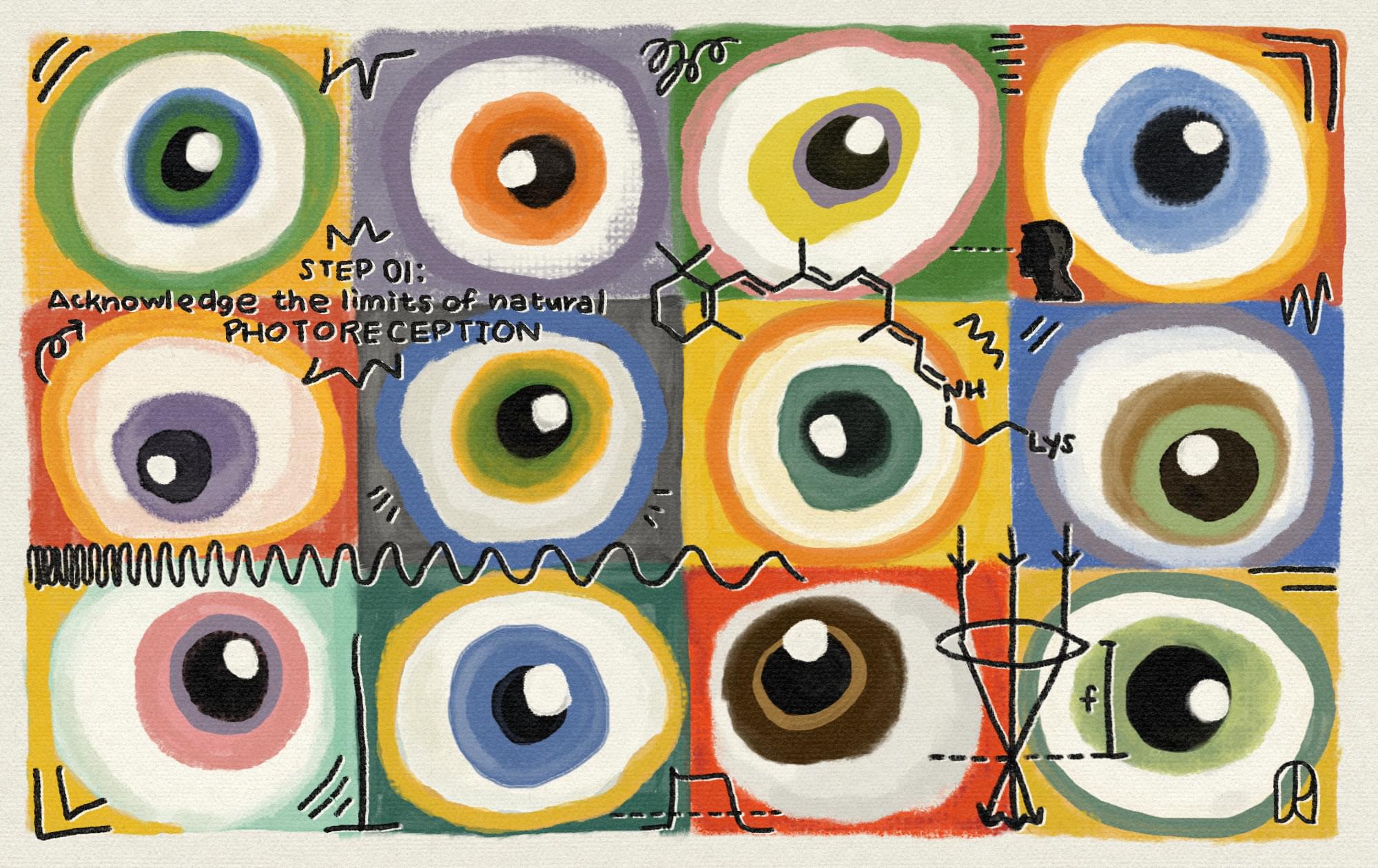
Looking at the bench and readings, he concluded that the previous night’s firmware update had introduced a timing mismatch. The wires hadn’t burnt out, but the clock that told them when to fire had been off by a microsecond, so the expected voltage response never lined up. He suspected half the channels had dropped out, even though the hardware itself wasn’t damaged. Fifteen minutes and a simple firmware rollback later, and everything worked perfectly.
Now, Lyre and I swapped the saline for neuron cultures to check if the wires could trigger and record real biological data. While we confirmed, Aux fine-tuned his AI encoder and processed April’s data.
We were finally ready to test the integrated system, without yet risking its insertion into April’s brain. We built something we only half jokingly called a “phantom cortex,” a benchtop stand-in: a synthetic cortical sheet of cultured neurons on a chip designed to act as April’s visual cortex. On one side, we put a lab-grown retinal implant that carried live sensory input. On the other, Aux’s playback device pushed reconstructed memories. The phantom cortex’s visual field was rendered on a lab monitor so that we could assess the pattern projections. The phantom cortex rig buzzing faintly in the background, gelled neuron sheets twitching under the microscope with each ripple of charge.
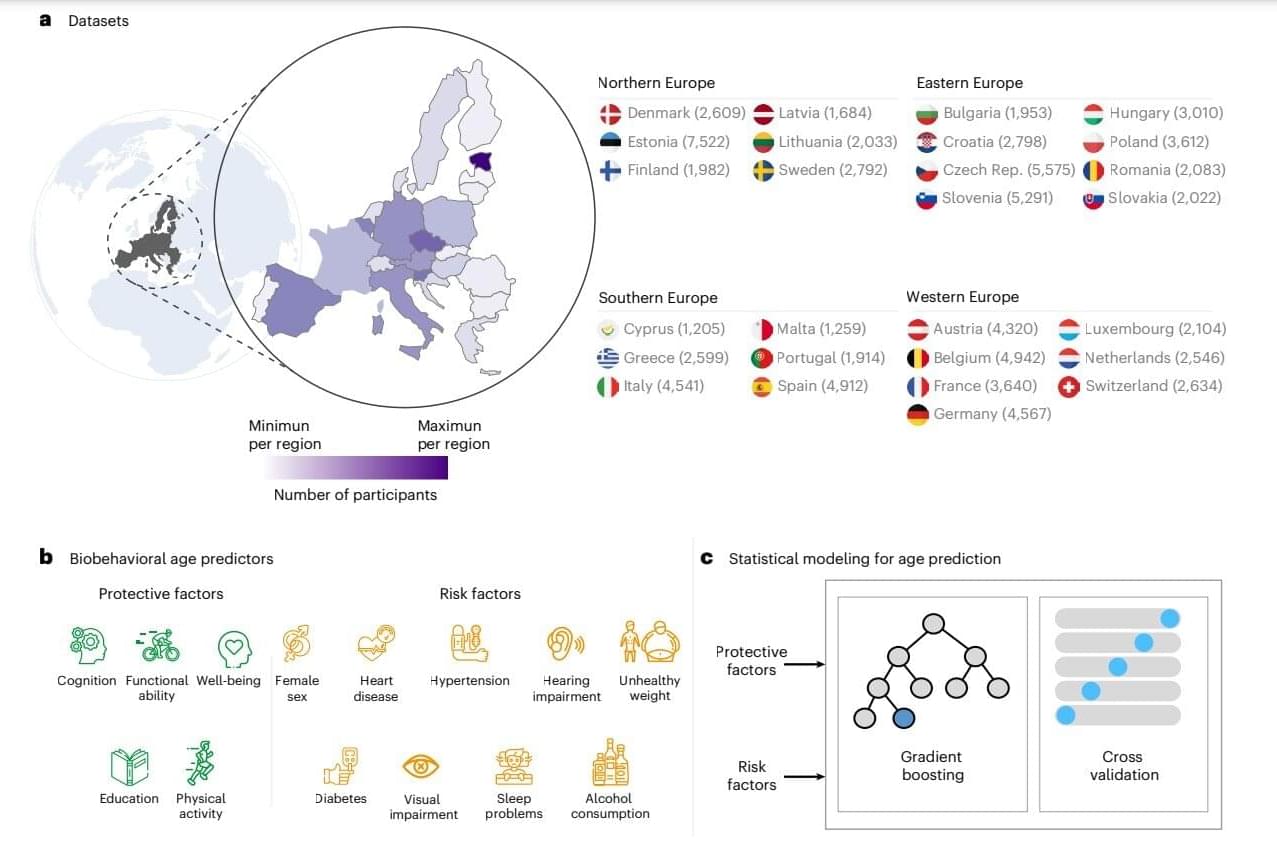
Speaking more than one language can slow down the brain’s aging and lower risks linked to accelerated aging.
In a new study, researchers analyzed the Biobehavioral Age Gap (BAG) —a person’s biological age using health and lifestyle data, then compared it to their actual age—of over 80,000 participants aged 51–90 across 27 European countries. They found that people who speak only one language are twice as likely to experience accelerated aging compared to multilingual individuals.
Researchers suggest that the protective effect might arise from the constant ongoing mental effort required to manage more than one language. The findings of this study are published in Nature Aging.
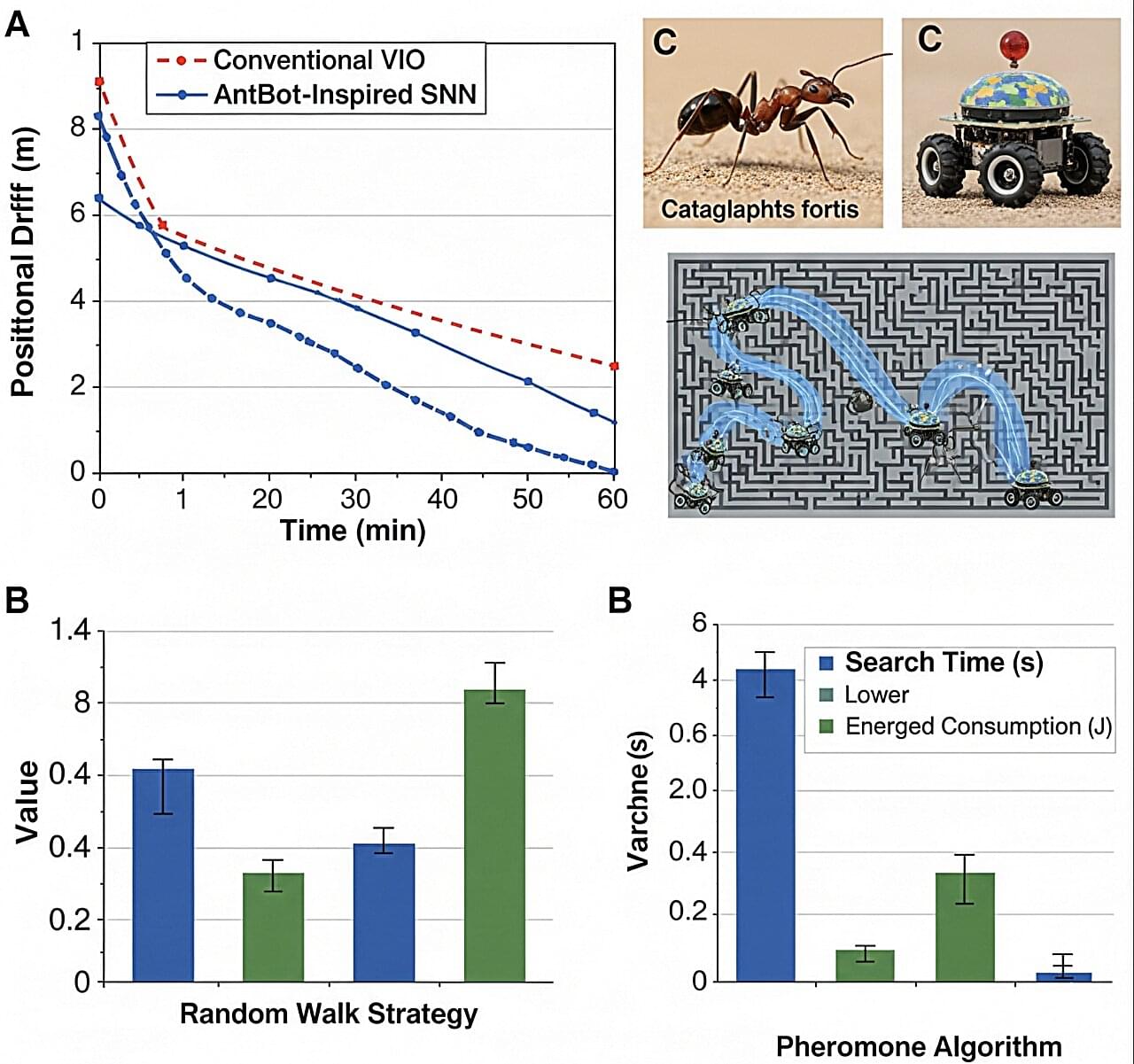
Robots could soon be able to autonomously complete search and rescue missions, inspections, complex maintenance operations and various other real-world tasks. To do this, however, they should be able to smoothly navigate unknown and complex environments without breaking down or getting stuck, which would require human intervention.
Most autonomous navigation systems rely on global positioning systems (GPS), which can provide information about where a robot is located within a map. In many environments, however, including caves, unstructured spaces and collapsed buildings, GPS systems either do not work or become unreliable.
Researchers at Beijing Institute of Technology recently developed a new nature-inspired system that could improve robot navigation in unstructured and complex environments, without relying on GPS technology. Their proposed framework— outlined in a paper set to be published in Cell Press and currently available on the SSRN preprint server—is inspired by three distinct biological navigation strategies observed in insects, birds and rodents.

Natural gas—one of the planet’s most abundant energy sources—is primarily composed of methane, ethane, and propane. While it is widely burned for energy, producing greenhouse gas emissions, scientists and industries have long sought ways to directly convert these hydrocarbons into valuable chemicals. However, their extreme stability and low reactivity have posed a formidable challenge, limiting their use as sustainable feedstocks for the chemical industry.
Now, a team led by Martín Fañanás at the Center for Research in Biological Chemistry and Molecular Materials (CiQUS) at the University of Santiago de Compostela has developed a groundbreaking method to transform methane and other natural gas components into versatile “building blocks” for synthesizing high-demand products, such as pharmaceuticals. Published in Science Advances, this advance represents a critical leap toward a more sustainable and circular chemical economy.
For the first time, the CiQUS team successfully synthesized a bioactive compound—dimestrol, a non-steroidal estrogen used in hormone therapy—directly from methane. This achievement demonstrates the potential of their methodology to create complex, high-value molecules from a simple, abundant, and low-cost raw material.
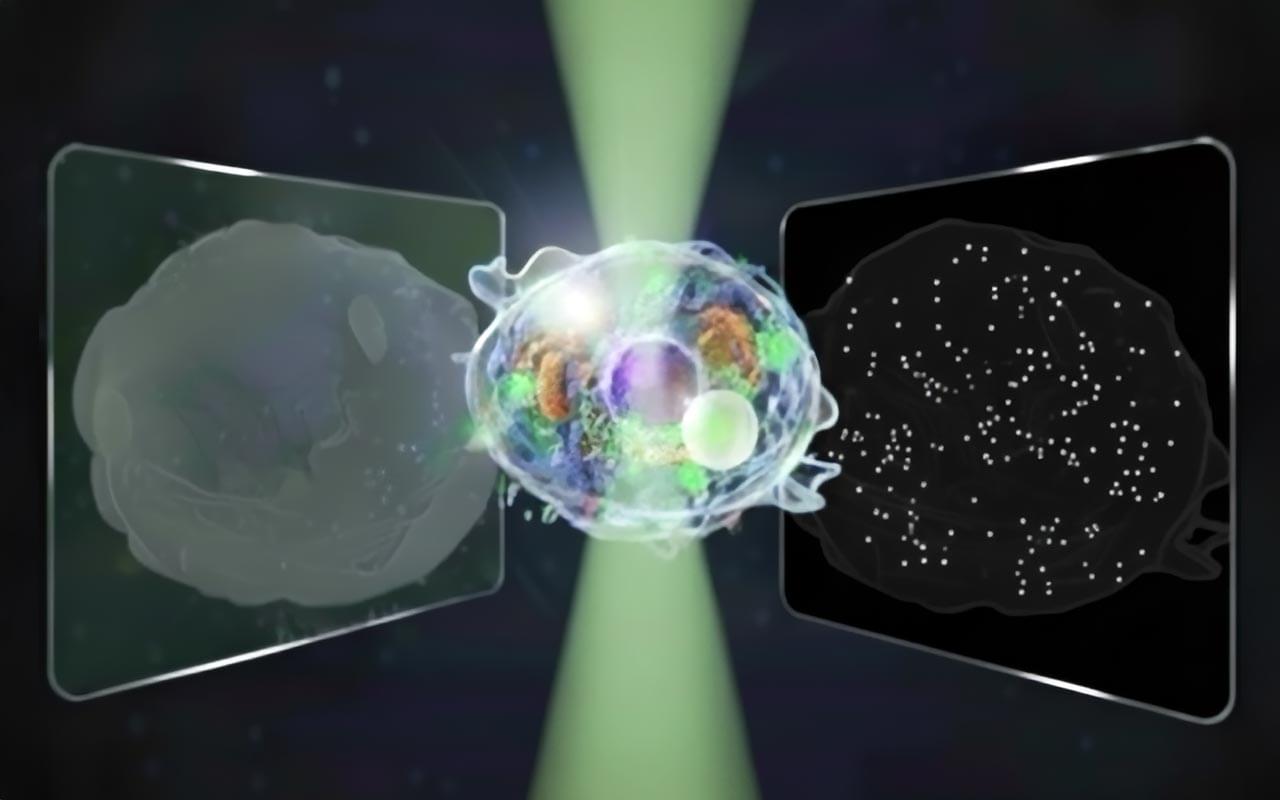

Speaking multiple languages could slow down brain ageing and help to prevent cognitive decline, a study of more than 80,000 people has found.
The work, published in Nature Aging on 10 November1, suggests that people who are multilingual are half as likely to show signs of accelerated biological ageing as are those who speak just one language.
“We wanted to address one of the most persistent gaps in ageing research, which is if multilingualism can actually delay ageing,” says study co-author Agustín Ibáñez, a neuroscientist at the Adolfo Ibáñez University in Santiago, Chile. Previous research in this area has suggested that speaking multiple languages can improve cognitive functions such memory and attention2, which boosts brain health as we get older. But many of these studies rely on small sample sizes and use unreliable methods of measuring ageing, which leads to results that are inconsistent and not generalizable.
“The effects of multilingualism on ageing have always been controversial, but I don’t think there has been a study of this scale before, which seems to demonstrate them quite decisively,” says Christos Pliatsikas, a cognitive neuroscientist at the University of Reading, UK. The paper’s results could “bring a step change to the field”, he adds.
They might also “encourage people to go out and try to learn a second language, or keep that second language active”, says Susan Teubner-Rhodes, a cognitive psychologist at Auburn University in Alabama.
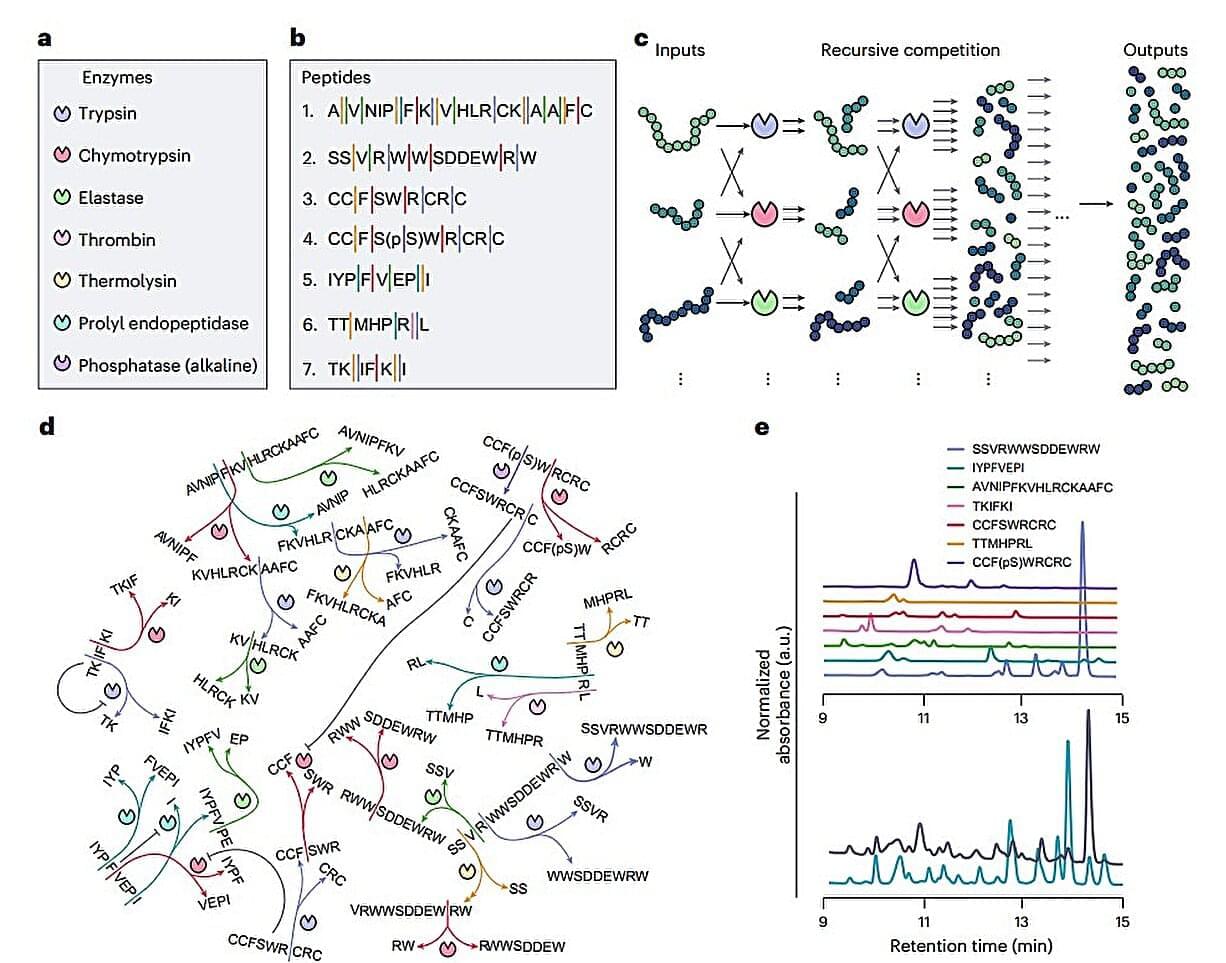
The ability to respond to changing surroundings was once considered exclusive to complex living organisms. Then came computers, specially designed for stimulus–response tasks, which can take in signals from their environment and choose what to do next based on the instructions already written into them.
Scientists have long wanted to replicate this kind of behavior in chemical systems. Life and computers both need many parts working in sync to make decisions, so expecting a handful of chemicals in a test tube to do the same seemed quite far-fetched.
Not anymore. A team of researchers from the Netherlands and Australia has developed a novel chemical network where different peptides compete for enzymes—specifically proteases arranged in a network. This competition causes the chemical mixture to reorganize itself, forming an enzymatic network that adapts to the external environment.
